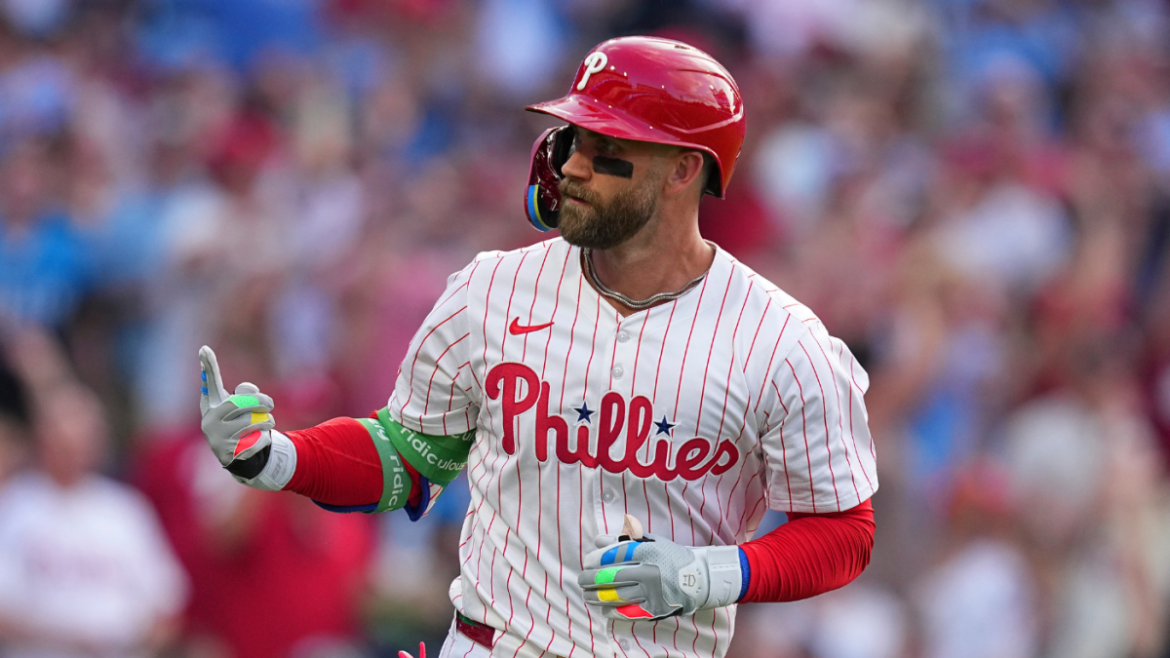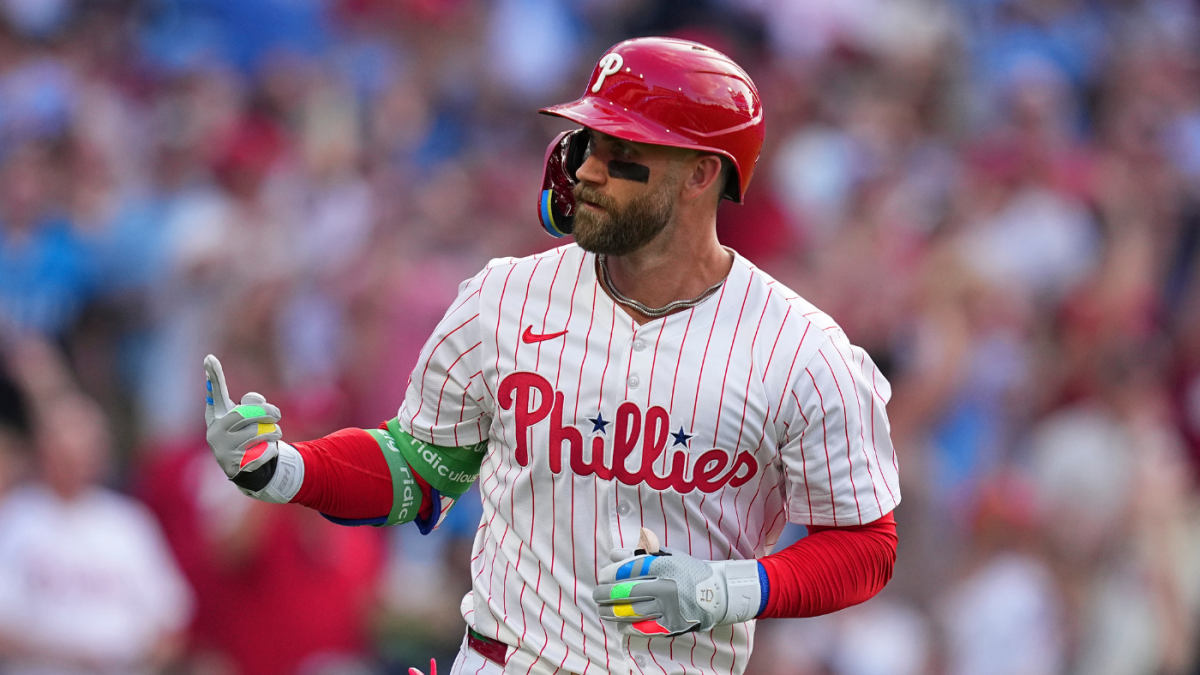The Harper-Manfred Confrontation: A Turning Point for MLB
The Clubhouse Clash That Shook Baseball
The Philadelphia Phillies’ clubhouse, typically a sanctuary for players, became the stage for a dramatic confrontation that sent shockwaves through Major League Baseball. Bryce Harper, the team’s star outfielder and two-time MVP, reportedly told MLB Commissioner Rob Manfred to “get the f— out of our clubhouse” during a meeting about a potential salary cap. This wasn’t just a heated exchange; it was a moment that encapsulated the deep-seated tensions between players and ownership, threatening to reshape the future of the sport.
The Salary Cap: A Battle Line Drawn
At the heart of the conflict lies the contentious issue of a salary cap. MLB owners have long advocated for such a measure, arguing it would create competitive balance by preventing wealthier teams from monopolizing top talent. However, the MLB Players Association (MLBPA) has fiercely opposed the idea, viewing it as a direct threat to player earnings and free agency.
For players, a salary cap represents more than just a financial constraint—it symbolizes a power shift that could erode their ability to negotiate fair market value. The mere suggestion of a salary cap ignites fierce resistance, as players see it as a mechanism to suppress their earnings while owners continue to profit from the sport’s growing revenue streams.
Harper: The Face of Player Defiance
Bryce Harper’s outburst was not an impulsive reaction but a deliberate statement. As one of the league’s most prominent and highest-paid players, Harper has emerged as a potential future leader of the MLBPA. His confrontation with Manfred underscores his commitment to defending player rights and challenging the status quo.
Harper’s actions reflect a broader sentiment among players who feel marginalized by the league’s economic structure. Many believe the current system favors owners, allowing them to manipulate service time, avoid guaranteed contracts, and control player earnings while reaping the benefits of increased revenue. Harper’s defiance was a bold rejection of this imbalance, signaling a growing willingness among players to push back against perceived injustices.
Manfred’s Dilemma: Balancing Interests
Rob Manfred inherited a complex relationship with the MLBPA, one fraught with tension and mistrust. As commissioner, he must represent the interests of the owners while maintaining a functional relationship with the players—a delicate balancing act that often leaves him in a precarious position.
Manfred’s clubhouse visits are intended to foster communication and improve relations, but they can also be seen as opportunities for the league to gauge player sentiment and advance its agenda. In the case of the Phillies’ meeting, the mere mention of a salary cap triggered Harper’s outburst, suggesting that Manfred’s efforts to build trust may be falling short.
The Looming Threat of Labor Disputes
The Harper-Manfred confrontation has raised concerns about the potential for another labor dispute when the current collective bargaining agreement (CBA) expires in 2026. The last CBA negotiations in 2021-2022 resulted in a lockout that delayed the season, highlighting the deep divisions between owners and players on economic issues.
If both sides remain entrenched on issues like the salary cap, free agency, and revenue sharing, another lockout becomes increasingly likely. Such a work stoppage would disrupt the season, damage the sport’s reputation, and have significant economic consequences for players, owners, and the communities that rely on baseball.
Beyond the Economics: The Soul of the Game
The debate over a salary cap and other economic issues ultimately raises a fundamental question: What kind of sport do we want baseball to be? Is it a business driven by profit maximization, or a game that prioritizes players, fans, and competitive integrity?
For many, baseball is more than just a business—it’s a cultural institution, a source of community pride, and a symbol of American identity. The players are not just employees; they are the stars who inspire millions of fans. A system that prioritizes cost control over player welfare risks alienating fans and diminishing the essence of the game.
Charting a New Course for MLB
The Harper-Manfred confrontation represents a critical juncture for Major League Baseball. It demands introspection and a willingness to address the underlying issues fueling the growing tension between owners and players.
Instead of resorting to adversarial tactics, both sides must engage in genuine dialogue, exploring creative solutions that address the economic concerns of owners while ensuring fair compensation for players. This may involve alternative revenue-sharing models, a salary floor to prevent tanking, or innovative incentives for player development and performance.
The future of baseball depends on the ability of owners and players to find common ground and build a more collaborative and equitable system. Failure to do so risks alienating fans, eroding the sport’s cultural significance, and jeopardizing its long-term prosperity.
A Wake-Up Call for Baseball
Bryce Harper’s confrontation with Rob Manfred was more than just a clubhouse outburst—it was a wake-up call. It reminded the league that players are not passive participants but active stakeholders with the power to shape the future of the game.
This moment should serve as a catalyst for change, prompting a renewed focus on building a sustainable and equitable future for Major League Baseball. Only by respecting the contributions of all stakeholders and preserving the integrity of the game can baseball reclaim its status as America’s pastime.





